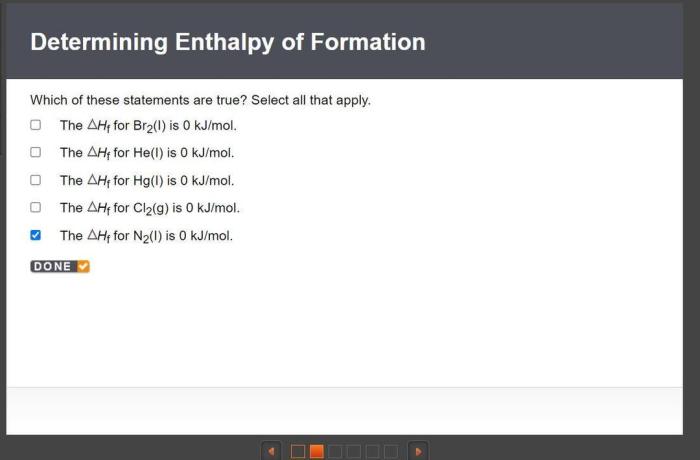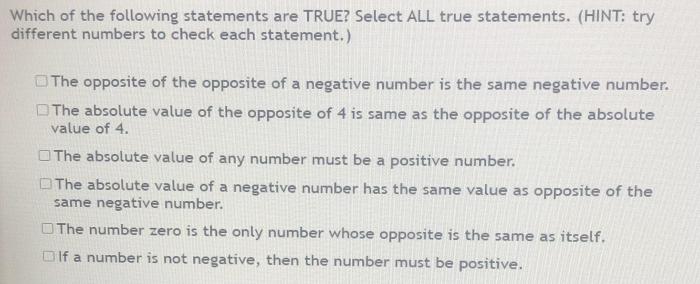Which statements are true select all that apply – In today’s information-saturated world, discerning truth from falsehood has become increasingly crucial. “Which Statements Are True: Select All That Apply” embarks on an enlightening journey to empower readers with the knowledge and skills to navigate the complexities of statement evaluation.
This comprehensive guide delves into the significance of verifying statement accuracy, equipping readers with practical methods for fact-checking and evaluating sources. By understanding the criteria for selecting true statements, readers will gain the confidence to make informed decisions and navigate the challenges of information overload.
Identifying True Statements: Which Statements Are True Select All That Apply

Determining the veracity of statements is crucial in the age of information overload. Verifying the accuracy of claims enables us to make informed decisions, avoid misinformation, and promote intellectual honesty.
Methods for verifying accuracy include fact-checking websites, consulting experts, and cross-referencing information from multiple reliable sources. Accepting false statements as true can lead to flawed conclusions, poor decision-making, and the perpetuation of misinformation.
Selecting True Statements
Selecting true statements requires critical thinking and the application of specific criteria. It is essential to consider multiple sources, as a single source may be biased or inaccurate. Evaluating the credibility of sources involves examining their expertise, reputation, and potential conflicts of interest.
Common Types of False Statements
Logical fallacies are common types of false statements that use flawed reasoning to present a misleading or deceptive argument. Techniques used to mislead include cherry-picking evidence, making unsupported generalizations, and employing emotional appeals. False statements can significantly impact decision-making by distorting perceptions and influencing beliefs.
Applying Knowledge to Real-World Situations, Which statements are true select all that apply
Selecting true statements is crucial in everyday life, from making informed purchases to evaluating news reports. Accepting or spreading false statements has ethical implications, as it can perpetuate misinformation and undermine trust. Critical thinking is essential for evaluating statements and making sound judgments.
Tools and Techniques for Analysis
Fact-checking websites and databases provide valuable tools for analyzing statements. They verify claims against established facts and identify potential biases or inaccuracies. Experts and professionals can also provide insights and specialized knowledge to assist in evaluating statements.
FAQ Summary
What are the key criteria for selecting true statements?
Statements should be supported by credible sources, verifiable evidence, and logical reasoning.
How can we identify logical fallacies in statements?
Logical fallacies often rely on faulty logic, emotional appeals, or misleading language.
What are the ethical implications of accepting or spreading false statements?
Accepting or spreading false statements can undermine trust, hinder decision-making, and contribute to the spread of misinformation.


